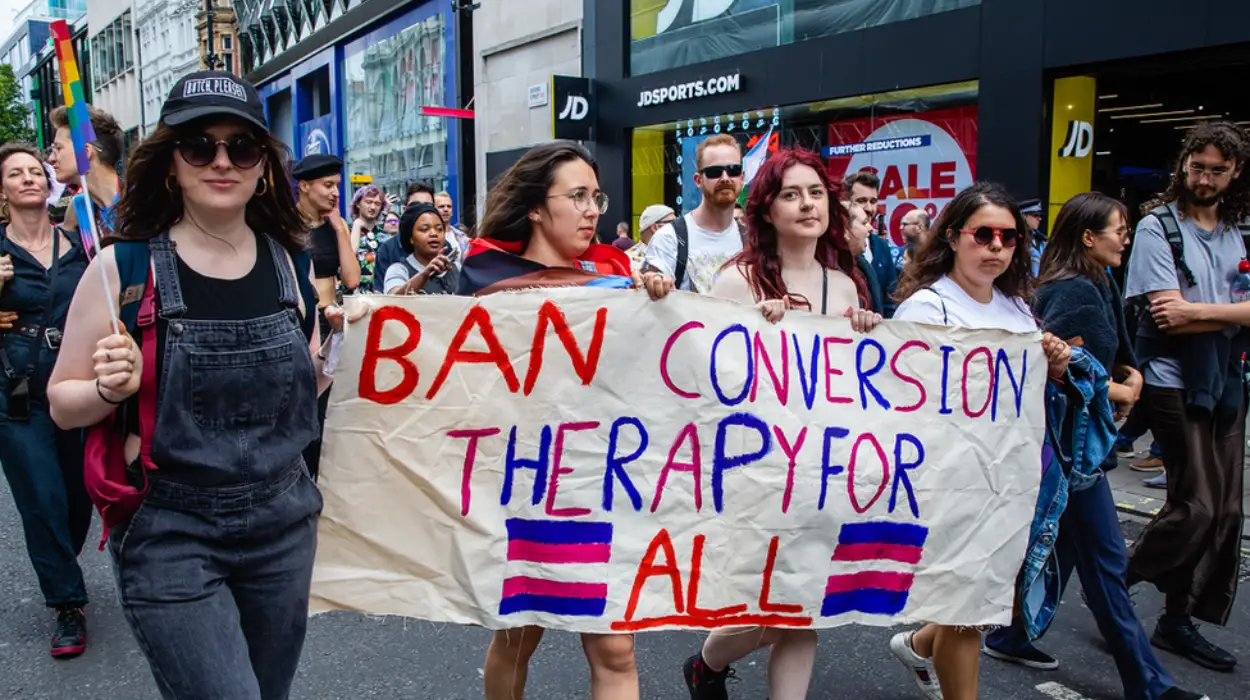For some reason, the Conservative government keeps promising to stop people from talking to each other.
This is what a ‘conversion therapy’ (or ‘conversion practices’) ban has always aimed at. The only new offence proposed by the government in 2021 was to ban ‘talking conversion therapy’ with the government noting that existing legislation is already in place that deals with coercion and physically damaging acts.
The reality in 21st century Britain is much different. If you want to reduce your gender dysphoria while living in line with your biological sex, or if you want to stay faithful to your marriage vows, youll only find two types of support – therapeutic and pastoral (i.e. religious).
In both cases, this simply means consensual conversations between adults. Why shouldn’t people be allowed to do that?
And as a new poll has shown, the public agrees.
A recent poll from Whitestone Insight showed that there was strong opposition to a ban on what is often called ‘conversion therapy’.
73% of the weighted sample agreed that people should be “free to decide for themselves whether to access any type of talking therapy they want for personal issues over their sexual identity”, with 71% supporting the freedom to access talking therapy “over their dissatisfaction with being male or female.”
10% and 9% disagreed with those freedoms respectively, meaning seven people supported the freedom for every person who opposed it.
The results were consistently supportive of this freedom across every demographic – age, religion and ethnicity.
‘Conversion therapy’ and ‘conversion practices’ as derided by campaigners simply doesn’t exist. No one is doling out electric shocks or bashing others over the head with a Bible. They are simply talking, praying. At most, they are going through well-evidenced psychological therapies like EMDR, CBT and mindful self-compassion – which is still just talking.
And they are doing this with people who want to be there. They have chosen to receive this support for their own reasons and there is no good reason to deny them that freedom.
If the government attempts to, there’s a very good chance that a ban will fall foul of basic human rights. To ban free speech, you need to show that your measures are strictly necessary and proportionate under ECHR law. But the evidence demonstrates that these conversations – in a religious or secular therapeutic setting – are helpful to people’s mental health.
The science also keeps demonstrating that sexuality is fluid. Researchers recently found that almost 7% of people in the UK changed their sexual identity over a six-year period, with similar numbers moving towards a heterosexual identity as moved away.
If people can and do change, why shouldn’t someone be allowed to seek that change?
Similarly, several studies demonstrate that over 80% of children with gender distress lose it over time if they are not socially transitioned or given puberty blockers. Some people transition. Others detransition. Why privilege some types of change while banning others?
Members of the UK public don’t want to see people hurt – no matter their gender, ethnicity, religion or sexuality. Some maysupport a ban on ‘conversion therapy’, but when they know what it is, the overwhelming majority support people’s freedom.
We must be free to talk. We must be free to shape the way we live our lives in the direction we want to.
To protect that freedom, we must say no to a conversion therapy ban.


